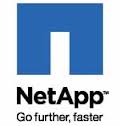What governments can do to prepare for a disaster (with related video)
GPN recently touched base with NetApp’s Gregory Ferguson about disaster planning for governments. Ferguson is Principal Architect, State and Local Government & Education, US Public Sector at Sunnyvale Calif.–based NetApp.
The company provides storage and data management products that boost IT efficiency and flexibility for governments, business and other organizations. Its products include FAS8000 series scale-out enterprise storage systems and FlexArray virtualization software.
Here are Ferguson’s views.
Government Product News: Do you have any advice for government agencies that are involved in disaster planning or data recovery after a disaster?
Gregory Ferguson: It is important for government agencies and other organizations to recognize that protecting data starts well before the disaster. This preparation should include creating policies for different types of data/applications; determining which data/application goes to which protection type; and the need to inventory data/applications. Government agencies and organizations should also wrap a good process around provisioning of new data/applications to ensure that they are captured by a policy and “logged” to avoid surprise applications.
GPN: What else do governments need to do in the disaster-planning process?
GF: There is also a need to document people and procedures associated with disaster planning and data recovery. Determine who is needed, what is needed, what steps are required to recover data, and in what order data recovery efforts should take place. 
In the case of anticipated events such as a forecasted natural disaster, re-validate the plan as the expected disaster date approaches, pre-position resources (people, equipment, etc.), and if some processes take an extended period of time and can be non-disruptive to general operations consider starting them in advance. Having this work done in advance can accelerate data recovery if needed.
GPN: What is management’s role in disaster planning?
GF: Agency management needs to empower the staff rather than hinder their efforts. While every single possibility cannot be predicted, executives need to empower and trust the staff to take proper action for as many scenarios as possible. A well-trained staff will be able to react to the situation dynamically, so if things don’t go exactly according to plan, they can adapt in an effective way.
GPN: Thank you, Gregory Ferguson.
In this video, Jorge Pazos, chief information officer of the city of Melrose, Mass., talks about how NetApp is helping the city scale up its IT systems in the private cloud.
_____________
To get connected and stay up-to-date with similar content from American City & County:
Like us on Facebook
Follow us on Twitter
Watch us on Youtube




















